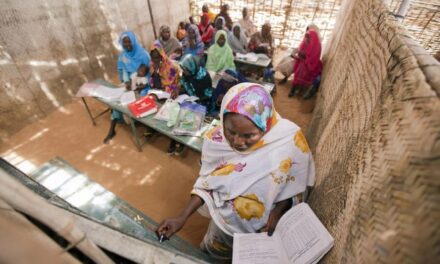
Is logging of the log frame enough? Perhaps its time to restart.
Is logging off the log frame enough? Perhaps its time to restart.
Last week, I wrote about Supergoals: The current overarching MDG Supergoal is poverty reduction and I proposed that the next Supergoal might be that of human development and well being. In this second post, I continue the theme of goals and targets, but encourage us in our thinking about Post 2015 development to log off the log frame and to make clearer distinctions between global and national targets.
The current debate about the MDGs focuses on the inclusion and exclusion of goals. Progress towards the MDGs depends on myriad sets of action on the ground. Those with responsibility for the definition of goals and with the mobilisation of finance around them live and work in vertical silos and in arenas remote from the ground-level activity that develop healthy minds in healthy bodies, the simplest definition of ‘human development and well being’.
The management tool designed to translate goals into actions and actions into goal achievement – the log frame – is ‘end loaded’. It is so dominated by end-results that it distracts attention away from the long and short term management needs of low-level planners and actors on the ground. Results-based management has provided the evaluation community, including large corporate management and accountancy firms, based mostly in the North, with an invaluable set of tools for retrospective project evaluation, where the relation between purposes, outcomes and goals and associated indicators and targets is more important than the tools and the time needed to plan, organise, implement, evaluate and replan that which constitutes the lower and most humble layer of the logframe – the activities. Activites often thousands of them, must occur in a coordinated fashion if progress is to be made – in access to education, in gender equity, in children’s learning and health and, ultimately in poverty reduction. Planning and management at ground level receives too little attention from those who design, approve and manage results-based evaluation frameworks.
As early as the mid 1990s I was suggesting, that if one’s role in life was planning and action near to the ground then it was time to ‘log off’ the log frame. Whatever the new MDG comes to be post 2015 my appeal now would be to log off and restart the log frame computer software. The new software should give more attention given to the planning required to meet goal aspirations of those who will take multiple actions in the future and to the multiple iterations between these low level aspirations and the aspirations of those who monitor and evaluate progress from on high. Results based management needs to be front loaded as well as end loaded. Results based management also needs to consider seriously the question of responsibility. Too often the application of the logframe by evaluators results in heaps of responsibility (and blame) piled on low level planners and implementers and too little on those who designed the log frame in the first place.
How can planning and evaluation tools be modified to support planning and action on the ground?
How can the approach to planning and evaluation be broadened to promote greater responsibility for the achievement of goals among actors operating within global, national and local arenas?
We must distinguish between global and national goals
When the MDG targets were set in 2002 they were conceived of as global targets. Global targets are not the same as national targets. A global target of ‘a 50% reduction in…’ could in principle generate different national targets. Countries are of very different sizes and have very different starting conditions. All can contribute to the achievement of a global target through nationally set targets that may differ. Unless a global target requires 100% performance then national targets and global targets do not need to be identical. In practice few understood the arithmetic difference between a global and a national target. Most assumed that global and national targets were one and the same.

- We must distinguish between global and national goals.
In this round of discussions clearer distinctions should be made between global, national and local targets. There needs to be a period of negotiation and a series of iterations between the local, the national and the global that enables both low as well as high performing countries to work towards realistic national targets whilst simultaneously contributing to global well being.
How can these distinctions be encouraged and the necessary negotiations successfully facilitated?






Trackbacks/Pingbacks